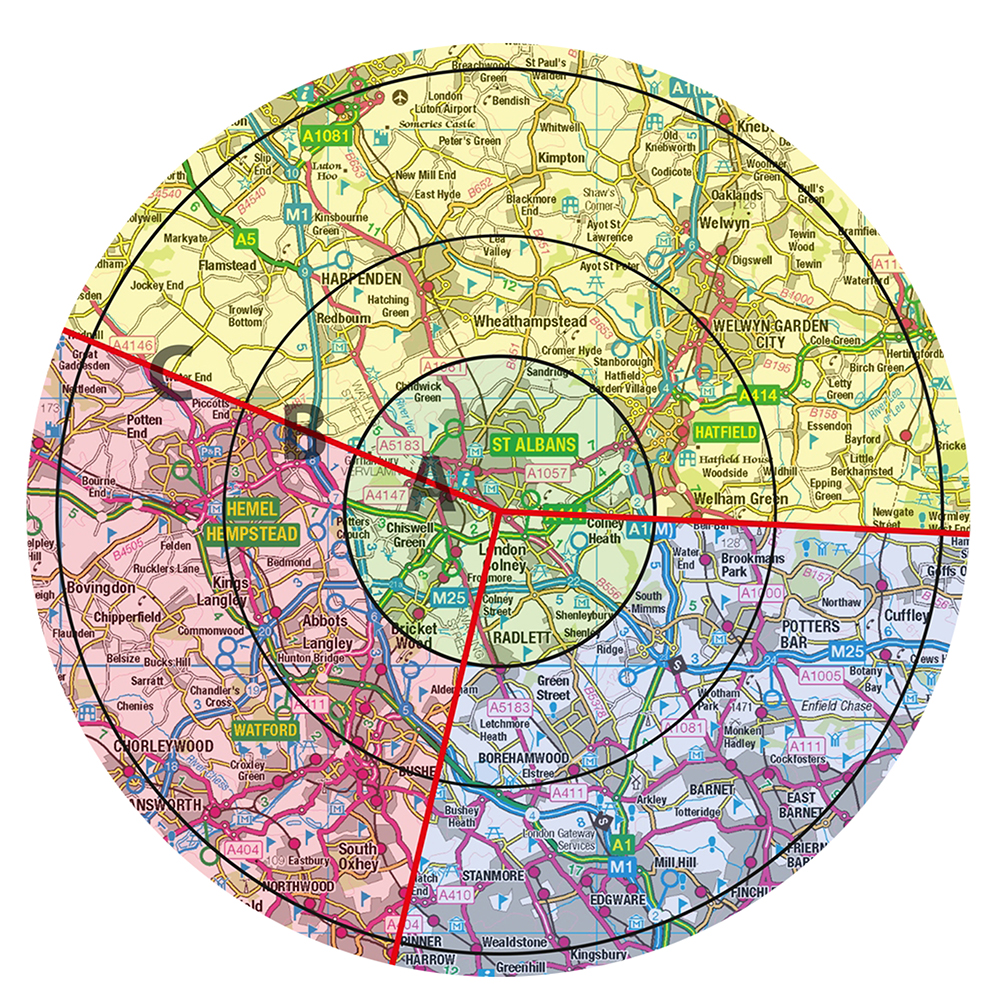
Our delivery areas are listed below.

Area A – Delivery Charge £6.95 or Free on purchases over £100
AL1, AL2, WD7, AL3 , AL4 0, AL4 9, WD25, SG4 8, WD7 8, WD7 9
Area B – Delivery Charge £9.95 or Free on purchases over £150
AL3 7, AL4 8, AL5 0, AL5 1, AL5 2, AL5 3, AL5 4, AL5 5, AL6 0, AL7 1, AL7 2, AL7 3, AL7 4, , AL8 6, AL8 6, AL8 7, AL9 7, AL10 0, AL10 8, AL10 9, HP1 1, HP1 2, HP1 3, HP2 4, HP2 5, HP2 6, HP2 7, HP3 0, HP3 8, HP3 9, WD4 8, WD4 9, WD5 0, WD6, WD25 8, WD25 9, EN6 1, EN6 2, EN6 3, EN6 4, EN6 5, WD23 1, WD23 2, WD23 3, WD23 4
Area C – Delivery Charge £11.95 or Free on purchases over £150
AL3 8, AL6 9, AL9 6, EN5 4, EN6 4, HA5, HA6, HA7, HA8, HP1 3, HP3 0, HP4 1, SG4 8, WD3 1, WD3 3, WD3 4, WD3 5, WD3 6, WD3 7, WD3 8, WD4 9, WD17, WD18, WD19, WD24, WD25
